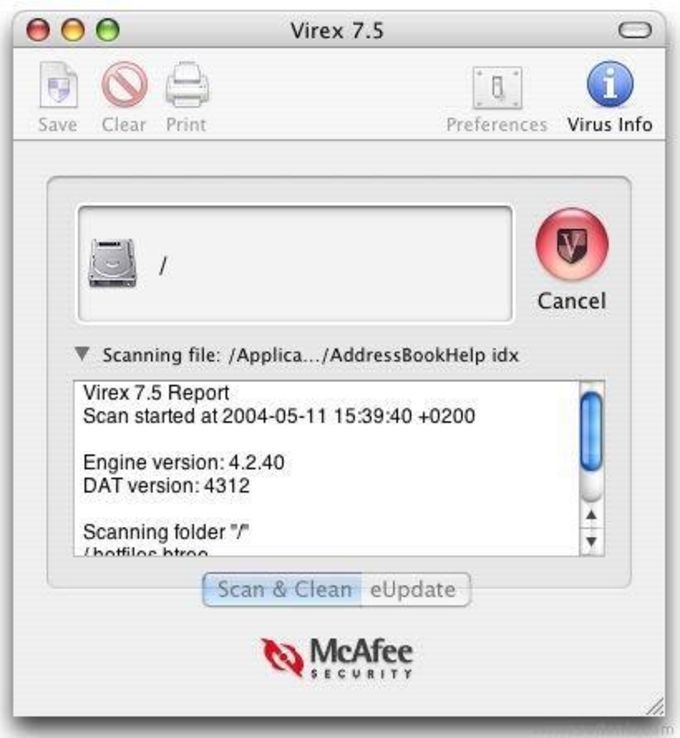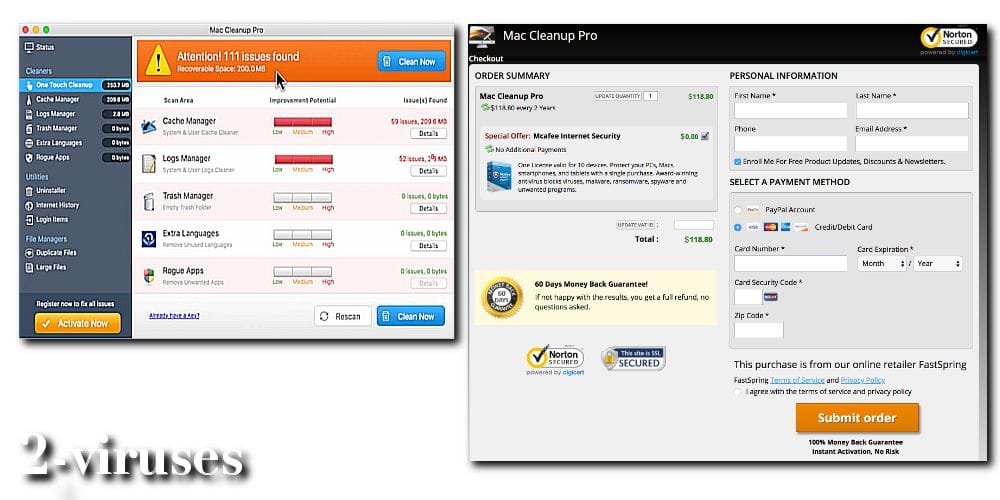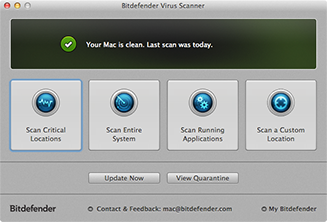Whether you think you might have a virus on your computer or devices, or just want to keep them running smoothly, it’s easy to do a virus scan. How you perform the virus scan depends on the software you have, so we’ll go through a few options below. But first, let’s cover a few telltale signs that you might may have a virus.
Do You Need A Virus Scan?

Sophos Home Free — Best for Overall macOS Protection & Free Parental Controls. Protect your Mac from malware. MacOS has many features that help protect your Mac and your personal information from malicious software, or malware.One common way malware is distributed is by embedding it in a harmless-looking app.

Is your computer or device acting sluggish, or having a hard time booting up? Have you noticed missing files or a lack of storage space? Have you noticed emails or messages sent from your account that you did not write? Perhaps you’ve noticed changes to your browser homepage or settings? Or maybe, you’re seeing unexpected pop-up windows, or experiencing crashes and other program errors. These are all signs that you may have a virus, but don’t get too worried yet, because many of these issues can be resolved with a virus scan.
What Does A Virus Scan Do, Exactly?
Each antivirus program works a little differently, but in general the software will look for known malware that meets a specific set of characteristics. It may also look for variants of these known threats that have a similar code base. Some antivirus software even checks for known, suspicious behavior. If the software comes across a dangerous program or piece of code, it removes it. In some cases, a dangerous program can be replaced with a clean one from the manufacturer.
How Do You Run A Scan?
On a Windows Computer:
If you are using the latest version of Windows, Windows 10, go into “Settings” and look for the “Updates & Security” tab. From there you can locate a “Scan Now” button.
Of course, many people have invested in more robust antivirus software that has a high accuracy rate and causes less drain on their system resources, such as McAfee Total Protection. To learn how to run a virus scan using your particular antivirus software, search the software’s “help” menu, or look online for exact instructions.

If you are using McAfee software, go here.
On a Mac Computer:
Computers running Mac software don’t have a built-in antivirus program, so you will have to download security software to do a virus scan. There are some free antivirus applications available online, but we always recommend investing in trusted software that can protect you from a variety of threats. Downloading free software can be risky, since cybercriminals know that this is a good way to spread malware.

Whichever program you choose, follow their step-by-step instructions on how to perform a virus scan, either by searching under “help”, or looking it up on their website.
On Smartphones & Tablets:
Yes, you can get the virus on your phone or tablet, although they are less common than on computers. However, the wider category of mobile malware is on the rise and your device can get infected if you download a risky app, click on an attachment in a text message, visit a dangerous webpage, or connect to another device that has malware on it.
Fortunately, you can protect your devices with mobile security software. It doesn’t usually come installed, so you will have to download an application and follow the instructions.
Because the Android platform is an open operating system, there are a number of antivirus products available for Android devices, allowing you to do a virus scan.
Apple devices are little different, however, because they have a closed operating system that doesn’t allow third parties to see their code. Although Apple has taken other security precautions to reduce malware risks, such as only allowing the installation of apps from Apple’s official app store, these measures aren’t the same as an antivirus program.
For more robust protection on your Apple devices, you can install mobile security software to protect the private data you have stored on your phone or tablet, such as contacts, photos, and messages.
All-In-One Protection:
If safeguarding all your computers and devices sounds overwhelming, you can opt for a comprehensive security product that protects computers, smartphones and devices from a central control center, making virus prevention a snap.
Scan My Mac For Viruses

Why are virus scans so important?
New online threats emerge every day, putting our personal information, money, and devices at risk. In the first quarter of last year alone McAfee detected 504 new threats per minute, as cybercriminals adopted new tactics. That’s why it is essential to stay ahead of these threats by using security software that is constantly monitoring and checking for new known threats, while safeguarding all of your sensitive information. Virus scans are an essential part of this process when it comes to identifying and removing dangerous code.
How Often Should You Do A Virus Scan?
Most antivirus products are regularly scanning your computer or device in the background, so you will only need to start a manual scan if you notice something suspicious, like crashes or excessive pop-ups. You can also program regular scans on your schedule.
Preventing Viruses
Of course, the best protection is to avoid getting infected in the first place. Here are a few smart tips to avoid viruses and other malware:
- Learn how to surf safe so you can avoid risky websites, links, and messages. This will go a long way in keeping you virus-free.
- Never click on spammy emails or text messages. These include unsolicited advertisements and messages from people or companies you don’t know.
- Keep the software on your computers and devices up to date. This way you are protected from known threats, such as viruses and other types of malware.
- Invest in comprehensive security software that can protect all of your devices.
- Stay informed on the latest threats, so you know what to look out for. The more you know about the latest scams, the easier they will be just spot, and avoid.
Looking for more mobile security tips and trends? Be sure to follow @McAfee Home on Twitter, and like us on Facebook.
Nov. 15, 2018
Try Norton 360 FREE 30-Day Trial* - Includes Norton Secure VPN
30 days of FREE* comprehensive antivirus, device security and online privacy with Norton Secure VPN.
*Terms Apply Ssd drive for mac.
The big question out there when it comes to Apple products is, “Can a Mac get a virus?” The short answer? Absolutely.
Apple computers can get viruses and malware just like PCs can. While iMacs, MacBooks, Mac Minis, and iPhones may not be as frequent targets as Windows computers, all have their fair share of threats.
Adware, spyware, ransomware, and hardware and software vulnerabilities are some of the problems now affecting Macs, and not just PCs. Read on to learn more about some of the most common malware and viruses that can affect Apple devices, what the signs are, and what you can do to help protect your devices.
Four types of Apple viruses — and a vulnerability
Apple viruses can range from annoying to outright damaging.
1. Adware on Macs
Adware is a potentially unwanted program that can bombard users with advertising pop-ups. Adware can be both malicious or benign. Some adware can work in conjunction with spyware, a type of software that can spy on and record everything you do online.
Pop-up ads can lead users to malicious websites that could deliver media='(min-width: 992px)'>
How To Scan For Virus On Mac Air
Editorial note: Our articles provide educational information for you. NortonLifeLock offerings may not cover or protect against every type of crime, fraud, or threat we write about. Our goal is to increase awareness about cyber safety. Please review complete Terms during enrollment or setup. Remember that no one can prevent all identity theft or cybercrime, and that LifeLock does not monitor all transactions at all businesses.
Scan For Virus On Macbook Pro
Copyright © 2020 NortonLifeLock Inc. All rights reserved. NortonLifeLock, the NortonLifeLock Logo, the Checkmark Logo, Norton, LifeLock, and the LockMan Logo are trademarks or registered trademarks of NortonLifeLock Inc. or its affiliates in the United States and other countries. Firefox is a trademark of Mozilla Foundation. Android, Google Chrome, Google Play and the Google Play logo are trademarks of Google, LLC. Mac, iPhone, iPad, Apple and the Apple logo are trademarks of Apple Inc., registered in the U.S. and other countries. App Store is a service mark of Apple Inc. Alexa and all related logos are trademarks of Amazon.com, Inc. or its affiliates. Microsoft and the Window logo are trademarks of Microsoft Corporation in the U.S. and other countries. The Android robot is reproduced or modified from work created and shared by Google and used according to terms described in the Creative Commons 3.0 Attribution License. Other names may be trademarks of their respective owners.
